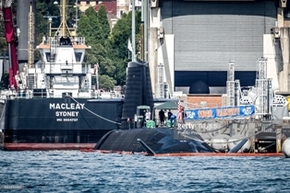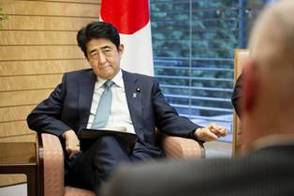 Source: www.gettyimages.co.jp
Source: www.gettyimages.co.jp On Thursday, Fairfax Media in Australia also broke the news that the Australian Federal Police had been called in by Defence to investigate who leaked the details of the NSC`s selection process to the media. The fact there was no denial from the government about the content of the leak, and the fact that the AFP had been called in again suggested that the reports had been accurate. This is important because this week an announcement is expected to be made by the Australian government about the submarine tender and which bid (or bids) have been selected to partner Australia`s most expensive defence project ever - $50 billion over 30 years to provide Australia with an advanced submarine capability, plus maintenance. Presumably the government doesn`t want any more information leaking out until it has informed all parties involved of its decision.
If Japan is not selected, it would be disappointing for those such as myself who have been advocating for Japan`s submarines since the topic was first raised. Japan has done everything it possibly can to convince Australia of its sincere desire to forge a closer defence partnership, and submarines were to be the lynchpin for this. To not be chosen would be a setback, but as Andrew Shearer pointed out during the week, it would not derail the progress that has already been made in Australia-Japan defence relations. These will go from strength to strength, as both sides realise what is involved and the necessity for closer defence ties.
At any rate, one way or another we will know by the end of the week what the Australian government has decided. Until then we can only hold our breath, steel our nerves, and bide our time until the announcement comes.

 RSS Feed
RSS Feed